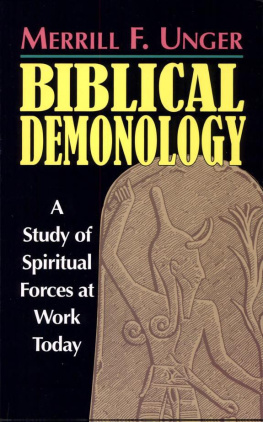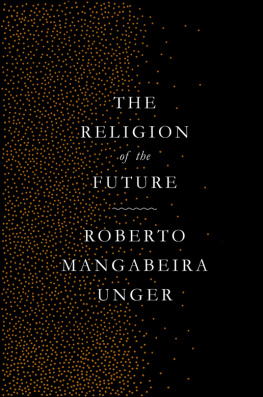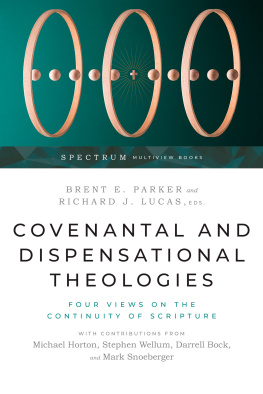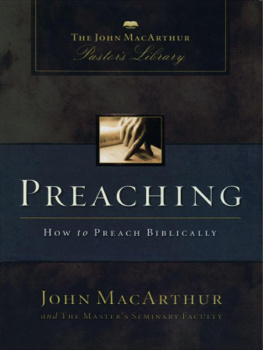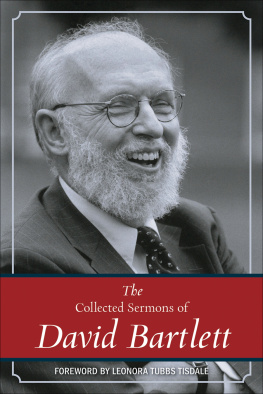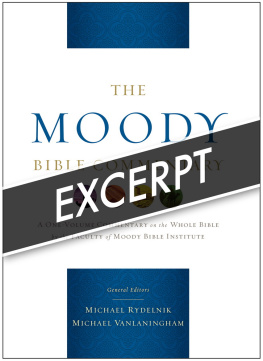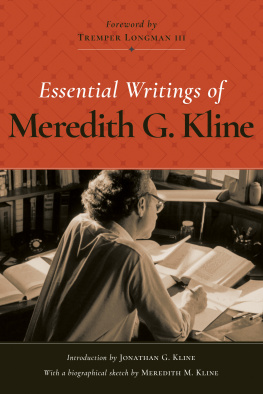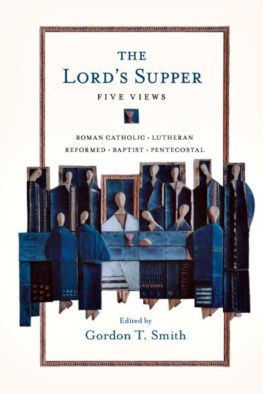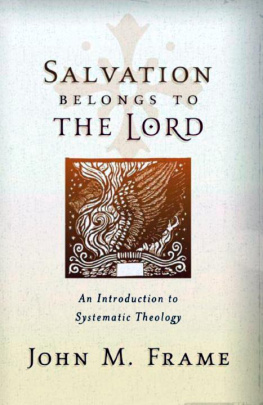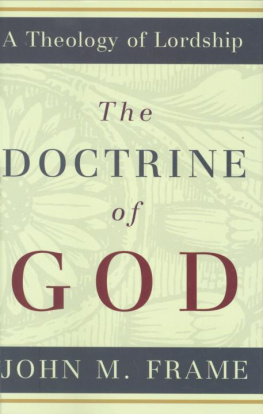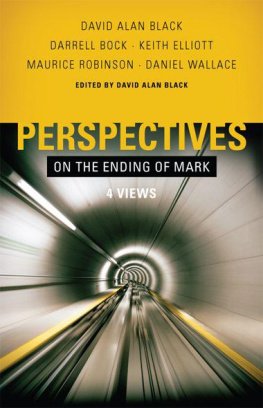MERRILL F. LINGER



CONTENTS
............................... vi
..................... vii
............... 1
.................. 9
..... 21
............. 35
.............. 62
......... 77
.................. 107
.............. 119
............. 143
................. 165
...... 181
............. 201
............. 214
.................................. 228
................................. 239
............................... 245
That no advantage may be gained over us by Satan: we are not ignorant of his devices (II Cor. 2:11).
To God-fearing parents, Whose faith and prayers Have been a source of inspiration And encouragement This book is affectionately dedicated.
ACKNOWLEDGMENTS
THE AUTHOR desires to express sincere gratitude to Dallas Theological Seminary for permission to use that portion of the material contained in this volume, which in 1945 was presented as a dissertation in partial requirement for the degree of Doctor of Theology. He also wishes to acknowledge his indebtedness to President Lewis Sperry Chafer and to Professor John Walvoord for invaluable help from a theological standpoint in the original form of the treatise, and to Dr. Wilbur M. Smith of Fuller Theological Seminary for indispensable aid bibliographically in the final elaboration and enlargement of the work for publication.
The author also extends his thanks to his father, who typed the original pages as a labor of love.
FOREWORD
THIS EPOCHAL work on demonology certainly has been written for such a time as this; for not since the days of the Church Fathers has there been so much serious interest in and discussion of the power of demons in world history as in these days, when the very powers of the heavens seem to be shaken, so that both Christians and unbelievers have a deep conviction, often unexpressed, that what is happening on our earth must be traced to supernatural and evil powers. In the first four centuries of the Christian Church, those mighty theologians, many of whom saw deeply into the Word of God, wrote extensively on demon power. Justin Martyr in his first Apology (LIV) continually insisted that heathen mythology originated in demonic deception, and added (LVI) :
The evil spirits were not satisfied with saying before Christ's appearance that those who were said to be sons of Jupiter were born of him; but after He had appeared and had been born among men, and when they learned how He had been foretold by the prophets and knew He should be believed on and looked for by every nation, they again put forward other men, the Samaritans, Simon and Menander, who did many mighty works by magic and deceived many and still keep them deceived.
A century later, Lactantius devoted considerable space to the fallen angels in the Second Book of his still worth reading Divine Institutes, in which he asserts that demons were:
The inventors of astrology, and soothsaying, and divination, and those productions which are called oracles, and necromancy, and the art of magic, and whatever evil practices besides these men exercise, either openly or in secret.... These are they who taught men to make images and statues; who, in order that they might turn away the minds of man from the worship of the true God, caused the countenances of dead kings to be erected and consecrated, and assumed to themselves their names.
Augustine, the greatest of all the Church Fathers, writing three centuries after the death of the last of the Apostles, at a time when Christian doctrine had come to rich maturity, frequently insists upon the terrible power of demons both in the times that had preceded and in the days that were yet to come.
For example, in the Second Book of his monumental City of God, he even goes so far as to say (Chap. 25) that demons had fought in some of the great battles of human history, and asks the question:
What spirit can that be, which by a hidden inspiration stirs men's corruption, and goads them to adultery, and feeds on the full-fledged iniquity, unless it be the same that finds pleasure in such religious ceremonies, sets in the temples images of devils, and loves to see in play the images of vices; that whispers in secret some righteous sayings to deceive the few who are good, and scatters in public invitations to profligacy, to gain possession of the millions who are wicked? In the Seventh Book (Chap. 33), Augustine rightly argues that Christianity, the only true religion, "has alone been able to manifest that the gods of the nations are most impure demons, who desire to be thought gods, availing themselves of the names of certain defunct souls, or the appearance of mundane creatures, and with proud impurity rejoicing in things most base and infamous, as though in divine honors, and envying human souls their conversion to the true God."
For nearly a millennium and a half, for some strange reason, the true Biblical doctrine of demons was hardly spoken of. Now and then a sermon would be preached on this subject; here and there a book on good and evil angels would inadequately discuss the matter, and though the power of demons was uppermost in those awful years of superstition and false accusations, when both in Great Britain and Colonial America many men and women, condemned as witches, were tortured, drowned, and burned to death; yet the real Biblical teaching on demons was almost never carefully investigated. In the 19th century the whole subject was sneered at by many as a superstitious idea which we had well got rid of, or was quickly passed over in theological treatises.
As an indication of how general was the ignoring of this Biblical truth in the days of the great Puritan divines, one needs only to recall that in the ten thousand pages of the writings of Richard Baxter, not one reference can be found to the activity of demons, outside of the Gospel records of our Lord's life on earth. The same is true in the writings of Thomas Goodwin and in the twenty some volumes of John Owen. Wesley devotes one page to the subject, in his sermon "Of Good Angels," but not as an active force in his own day. We do not find anything in the writings of Jonathan Edwards which really deals with this problem.
With the coming of the two great World Wars, especially the second, and the frightful destruction brought upon Europe by Adolph Hitler, the awful persecution of Christians on the part of Communism in its swift progress around the world, capturing the attention and devotion of hundreds of millions, together with the deep deceptions that are today abroad, and what Brunner calls "a mass atheism which was formerly unknown," men, desiring to ascertain something of the causes of these appalling eruptions of evil, have turned back to the New Testament to search out its teaching on supernatural beings whose constant mission it is to deceive, and degrade, and destroy men. During the last ten years most of the scholarly volumes devoted to Hitler speak of him as a demon-possessed man, and present abundant evidence that when in some paroxysm of anger, or under what he called inspiration, his eyes looked out with an inhuman luster. Many German writers, as Paul Tillich in his Interpretation of History and Cullmann in his important Christ and Time, speak of the demon forces controlling modern history, even though perhaps they use the term "demonic" as referring to strange forces in modern civilization, not necessarily derived from evil individuals by an evil spirit. Dr. Reinhold Niebuhr, in his now famous Gifford Lectures, The Nature and Destiny of Man, devotes considerable attention to this matter of demonized civilization. E. C. Rust, in his remarkable volume, The Christian Understanding of History, writes:

